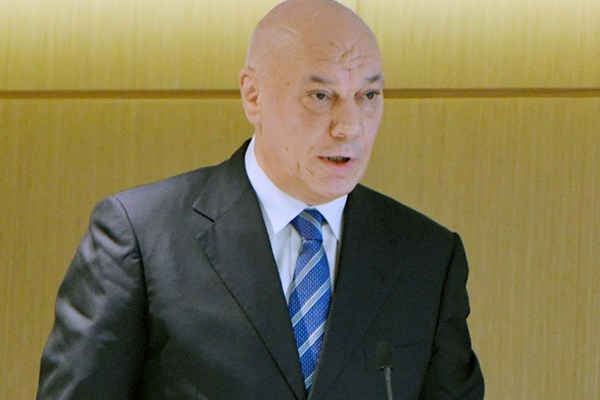Putin fires Russia’s ‘chief jailer’
Russian President Vladimir Putin has signed a decree to dismiss a number of senior security forces personnel. One of them is Colonel-General Gennady Kornienko, Director of Russia’s Federal Penitentiary Service.
The Russian media reports that his dismissal is linked to his reaching the age limit for service – 65.
In actual fact, Kornienko has not led the department since the start of September. He reportedly went on holiday on September 2, appointing his first deputy Anatoly Rudy as acting director in his stead.
Kornienko had held the position for more than seven years, since June 2012. He replaced Alexander Reimer, who was fired for embezzling approximately $46 million allocated for the purchase of electronic bracelets. In June 2017, Reimer was sentenced to 8 years in prison and stripped of his military rank.
Kornienko had to continue the reform of the Russian penitentiary system that his predecessor had begun. During his tenure, a network of corrective centers were established to receive prisoners sentenced to forced labor. Previously the Russian Criminal Code did not contain this form of punishment.
During Kornienko’s directorship, there were several high-profile scandals relating to abuse of power by the heads of correctional facilities. These included torture in Karelian penal colony No. 7; a battery case in Yaroslav; the scandal surrounding Tsepovyaz, who ate crab and red caviar; the VIP cell in Matrosskaya Tishina, and the arrest and subsequent 7-year imprisonment of deputy department head Oleg Korshunov for the embezzlement of 263 million rubles (around $4.1 million).
The columnists also note that Kornienko’s activity as head of the service can be considered “a solid four” out of five. While he was “Russia’s chief jailer”, prisoner mortality decreased drastically. Whereas in 2012, 107 out of 100,000 prisoners died from tuberculosis in penitentiary institutions, the current figure is only 7.14 out of 100,000. There was also a sharp rise in the number of prisoners out on parole, and a significant number of old prisons were renovated.
However, one of the main reasons why Gennady Kornienko will be remembered not only by convicts but also by subordinates is the practice he introduced of refusing to use violent methods of persuasion on prisoners at the behest of the investigative organs.
Kornienko repeatedly reminded his subordinates that penitentiary staff are meant to protect prisoners, and not to beat confessions out of them through poor imprisonment conditions. People who disregarded the chief’s instructions in this regard were severely punished.
